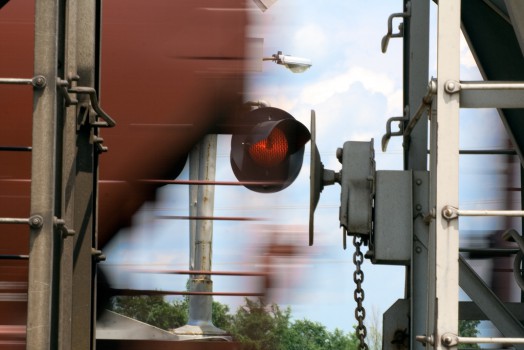By Paul Hemsley
The Western Australian Local Government Association (WALGA) has hit out at Brookfield Rail’s planned closure of two grain freight lines in the state’s Wheatbelt, claiming that the shutdown will force thousands of heavy trucks onto local roads which can’t deal with the big-wheeled burden unless councils are allocated new funding for upgrades.
The warning from WALGA President Troy Pickard follows Brookfield Rail chief executive officer Paul Larson’s announcement that the York-to-Quairading and Merredin-to-Trayning ‘Tier 3’ grain freight rail lines, which are leased from the state government, will stop operating from 31st October 2013.
The dispute is the latest episode in a long-term struggle by councils across Australia to limit cost shifting by state and federal governments to the local sector by instigating funding cuts or failing to upgrade transport core infrastructure that in turn winds up on council maintained roads.
Mr Larson said in the absence of substantial investment from the state government to support longer term operation, Brookfield Rail was not satisfied the safe and sustainable operations of the two grain can be maintained past 31st October.
The WA Government provided capital and maintenance funding three years ago and Brookfield estimated at the time that it would cost $90 million to re-sleeper the ageing Tier 3 network. However the WA government subsequently made a policy decision not to further invest in the Tier 3 network.
The closure comes amidst negotiations between Brookfield Rail and grain handler CBH Group to seek an agreement on how to use the WA’s remaining Tier 3 rail lines through the upcoming 2013/14 harvest – which is expected to deliver a bumper crop.
The WA Minister for Transport, Troy Buswell, said it was up to Brookfield and the CBH Group to reach an agreement on keeping the lines open.
But the state’s councils remain critical of expected increase of truck movements on roads to transport grain, prompting WALGA to demand the state government conduct an audit of the existing standard of roads what will be required in terms of maintenance and upgrades to handle the increased freight traffic.
Mr Pickard said freight should be carried on rail wherever possible and the road network should be upgraded and maintained at a suitable standard to meet this task if it is not possible to convey freight by rail.
“Most local roads are not designed for the current grain freight task and to move considerable freight onto local roads may have a significantly detrimental effect on the road safety and structural integrity of a road,” Mr Pickard said.
According to Mr Pickard, councils are unable to keep up with the maintenance required resulting from the “current wear and tear” on the roads because of the present volume of freight being transported by heavy vehicles on local government roads.
“If the level of freight were to increase as it seems will be the case this season, that gap between maintenance required and the resources available to Local Governments will only increase further,” Mr Picard said.
He said this “makes it imperative” for additional funding to be provided in order to keep the roads safe.
Comment below to have your say on this story.
If you have a news story or tip-off, get in touch at editorial@governmentnews.com.au.
Sign up to the Government News newsletter

